 California-based EV start-up Lucid has revealed the production version of its Air sedan, an electric performance saloon with up to 795kW and a claimed maximum range of 830 kilometres.
California-based EV start-up Lucid has revealed the production version of its Air sedan, an electric performance saloon with up to 795kW and a claimed maximum range of 830 kilometres.
The marque’s debut model is claimed to be “the most aerodynamic luxury car in the world”, with a drag co-efficient of just 0.21 – 0.01 less than the new Mercedes-Benz S-Class, for reference. With an (unrestricted) top speed of 378km/h, it will be the fastest electric production car on sale.
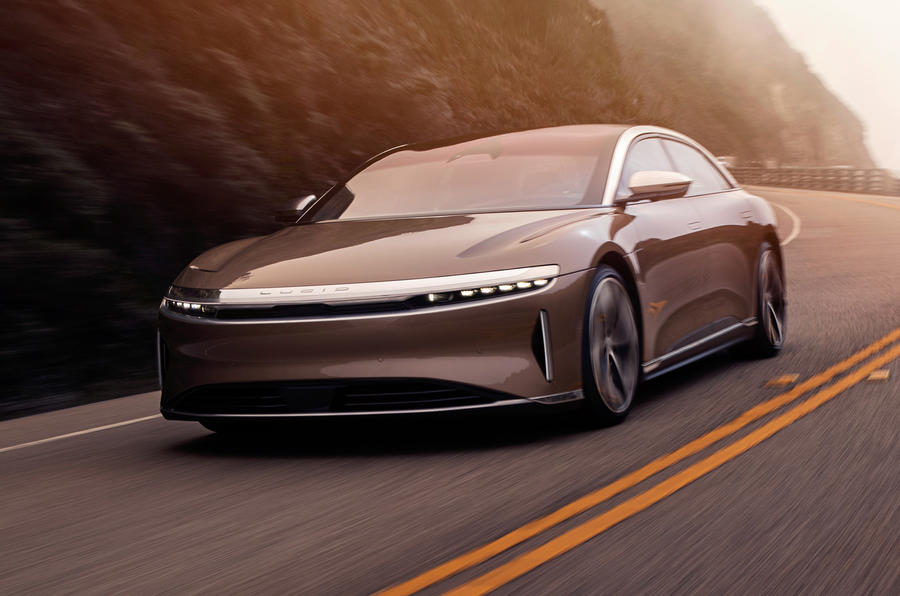 Lucid said the Air can cover a quarter-mile sprint in as little as 9.9sec, making it the first electric sedan to break the 10-second barrier, and adds that it can achieve this feat on a “consistent, repeatable basis”.
Lucid said the Air can cover a quarter-mile sprint in as little as 9.9sec, making it the first electric sedan to break the 10-second barrier, and adds that it can achieve this feat on a “consistent, repeatable basis”.
The Air will be available in four trim levels to start with. The standard car, available from US$52,100 (AUD$72,000) including the US’s EV tax credit, uses a single electric motor to send 294kW to the rear wheels and is capable of a claimed 385-kilometre range from a 75kWh battery pack supplied by Samsung.
The Touring model bumps power up to 456kW, range to 654 kilometres and the list price to US$87,500 (AUD$120,000), while the Grand Touring packs 588kW, costs US$131,500 (AUD$180,000) and is capable of the maximum claimed range figure.
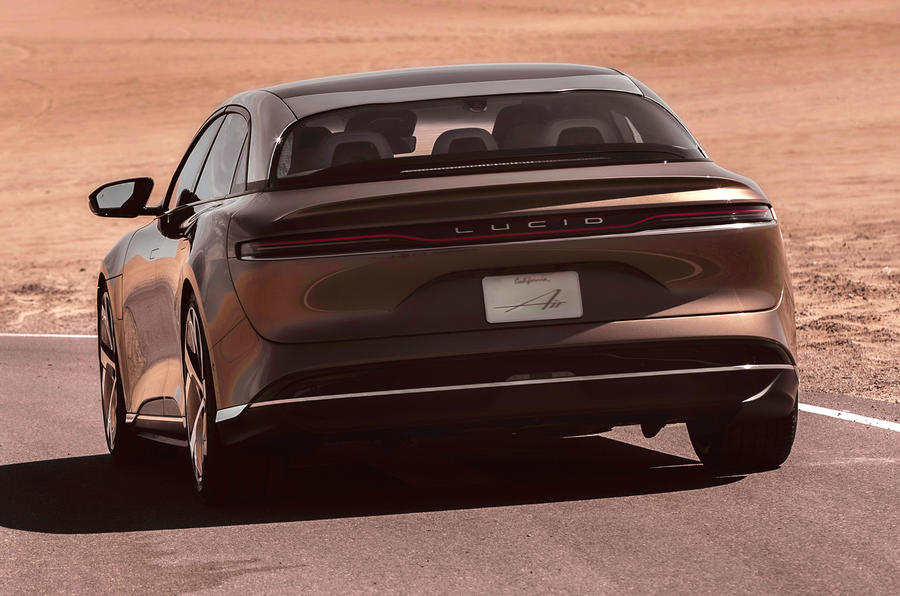 Buyers who want the full 794kW output will need to spend US$161,500 (AUD$221,000) for the top-rung, four-wheel-drive Dream Edition, which is capable of sprinting from 0-100km/h in 2.5sec. It also brings a bespoke interior design trimmed in leather and eucalyptus wood, and a set of unique 21-inch wheels. Lucid says production of the top-spec car will be limited, but has yet to confirm numbers.
Buyers who want the full 794kW output will need to spend US$161,500 (AUD$221,000) for the top-rung, four-wheel-drive Dream Edition, which is capable of sprinting from 0-100km/h in 2.5sec. It also brings a bespoke interior design trimmed in leather and eucalyptus wood, and a set of unique 21-inch wheels. Lucid says production of the top-spec car will be limited, but has yet to confirm numbers.
All variants are claimed to be capable of recuperating 480 kilometres of range in just 20 minutes at a DC fast charger, making the Air “the fastest-charging electric vehicle ever offered”, according to Lucid.
The Air has been brought to production largely unaltered from the futuristic prototype first displayed in 2016, and retains its distinctive wraparound front light bar, which uses a ‘micro lens array’ system comprising thousands of individual, digitally controlled ‘light channels’ to offer bright, precise and flexible illumination.
Aerodynamic efficiency is aided by the Air’s long, low silhouette, curved corners and short overhangs, while the cabin has been designed to offer a “light and airy feel”, with thin window pillars and a glass roof. Five seats feature as standard, but the rear bench can be swapped out for two ‘executive’-style chairs as an optional upgrade.
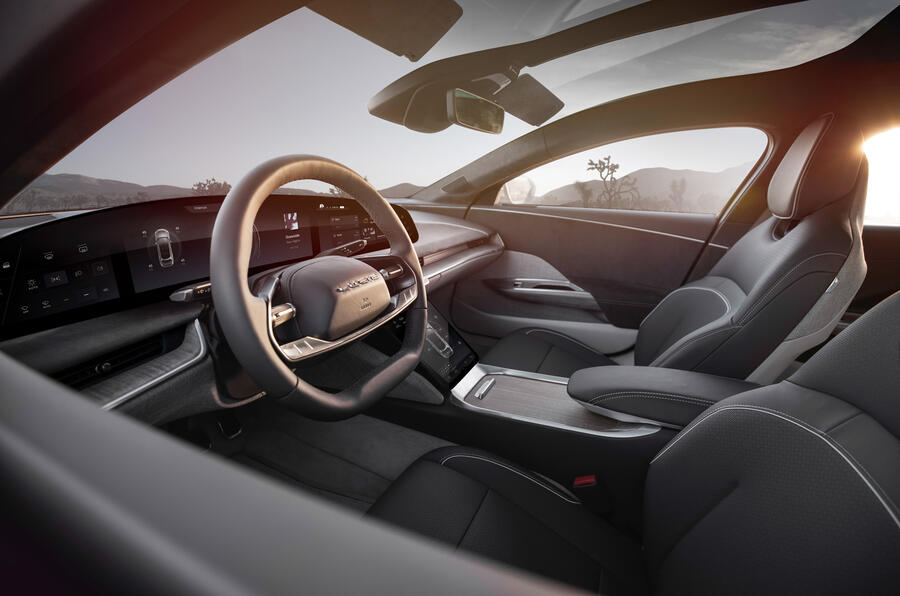
Designed with an emphasis on space, the interior is dominated by a 34-inch curved screen that appears to float above the dashboard and offers 5k display quality – far higher than a conventional infotainment system, and a retractable ‘pilot panel’ touchscreen sits within easy reach of the driver, giving control of certain systems and functions.
Not all controls are digital, however; physical buttons – said to be precision-milled – are used for the ribbed steering wheel functions and climate control, and Lucid has worked with Amazon to implement Alexa voice-recognition software, which can be used for navigation, phone calls, music streaming and smart home control.
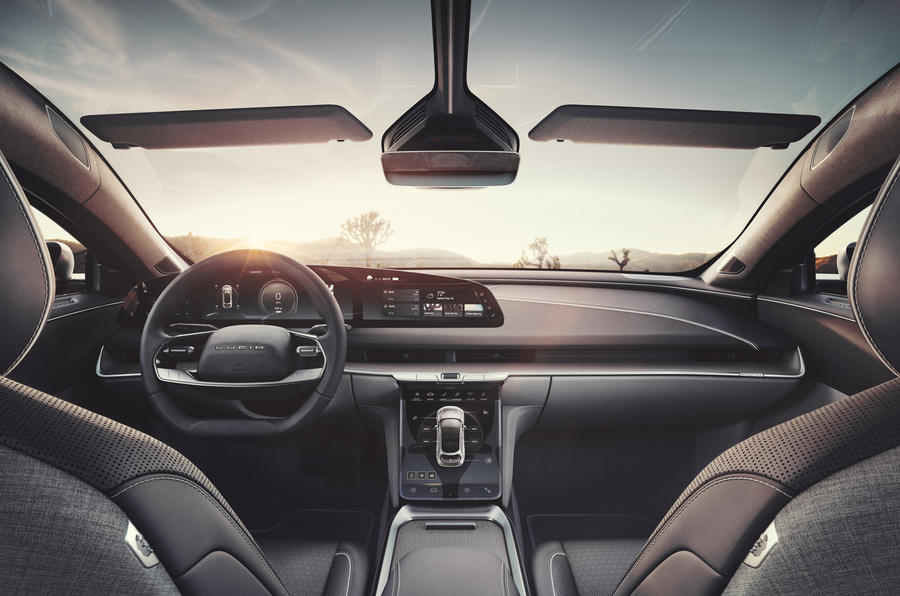 The Air sits atop Lucid’s own Electric Advanced Platform (LEAP), which minimises incursion from the powertrain into the cabin, allowing for a larger cabin area. The architecture also forms the basis for the firm’s upcoming SUV model, expected to share most of the Air’s mechanical make-up.
The Air sits atop Lucid’s own Electric Advanced Platform (LEAP), which minimises incursion from the powertrain into the cabin, allowing for a larger cabin area. The architecture also forms the basis for the firm’s upcoming SUV model, expected to share most of the Air’s mechanical make-up.
Air suspension with regenerative valve technology also features, and is claimed to offer segment-leading ride quality.
Lucid claims the Air’s advanced driver assistance system (ADAS) is “a first-of-its-kind platform”. It comprises 32 individual sensors covering vision, radar and ultrasonics, a high-resolution Lidar sensor and advanced high-definition mapping software to offer level two and level three autonomous functionality.
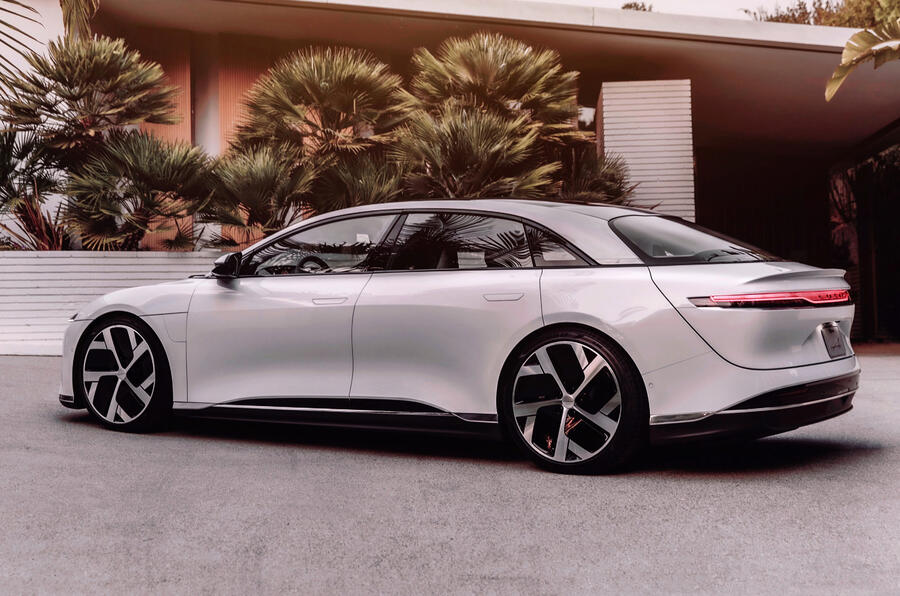
The Air is Lucid’s first foray into the production EV market. CEO Peter Rawlinson – who previously served as chief engineer of the Tesla Model S, the Air’s primary rival – hailed the new arrival as a “halo car for the entire industry, one which shows the advancements that are possible by pushing the boundaries of EV technology and performance to new levels”.
Derek Jenkins, vice-president of design at Lucid, said: “When we embarked on this journey at Lucid Motors and the development of our first vehicle, the Lucid Air, we refused to compromise. We decided early on that we were going to pursue every facet of performance, innovation, and luxury.
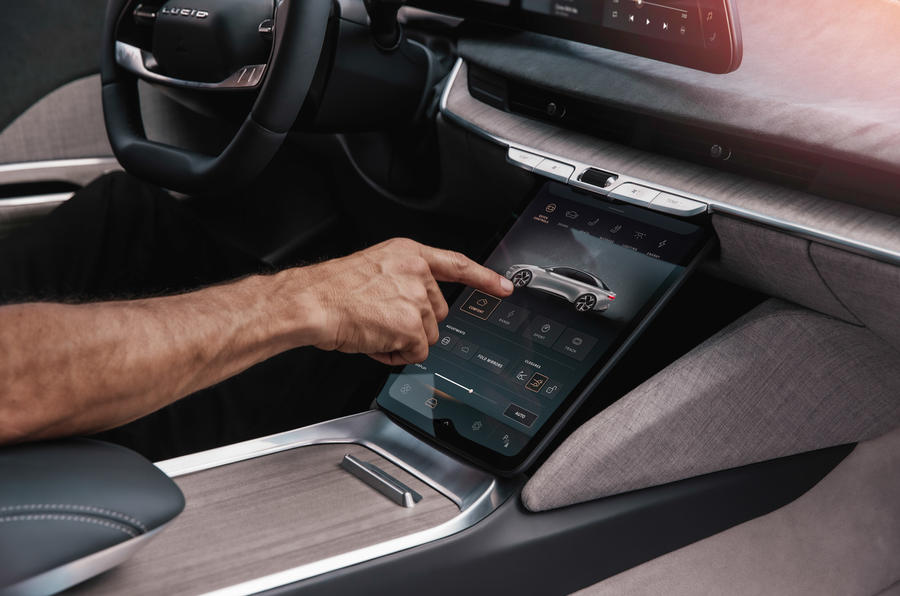 “The result is that we are building the best car in the world and the numbers simply speak for themselves.”
“The result is that we are building the best car in the world and the numbers simply speak for themselves.”
Launching initially in the US in spring next year, the Air is also now available to order in selected European countries and the Middle East.
Lucid will build the new car and its SUV stablemate at a AUD$975 million, purpose-built factory in Casa Grande, Arizona. Some 2000 workers will be employed at the plant by 2022, with the company aiming to ultimately produce 20,000 units per year. The firm also plans to open 20 retail and service centres across the US by 2021.
Felix Page
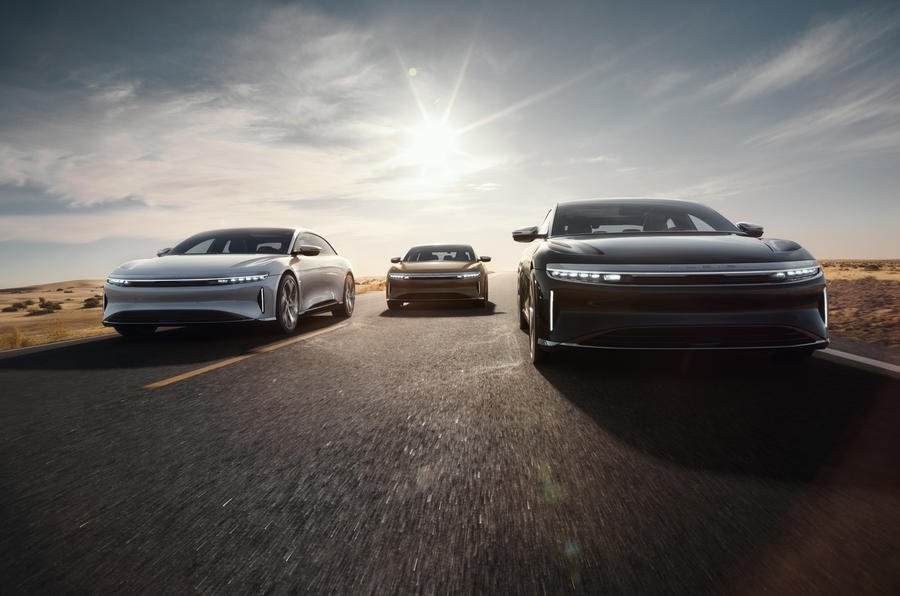




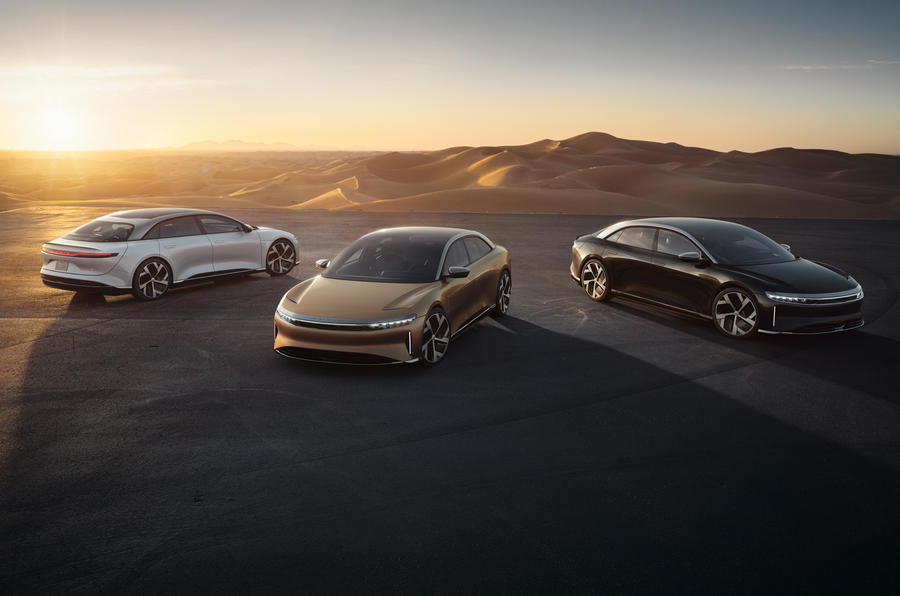 California-based EV start-up Lucid has revealed the production version of its Air sedan, an electric performance saloon with up to 795kW and a claimed maximum range of 830 kilometres.
California-based EV start-up Lucid has revealed the production version of its Air sedan, an electric performance saloon with up to 795kW and a claimed maximum range of 830 kilometres.